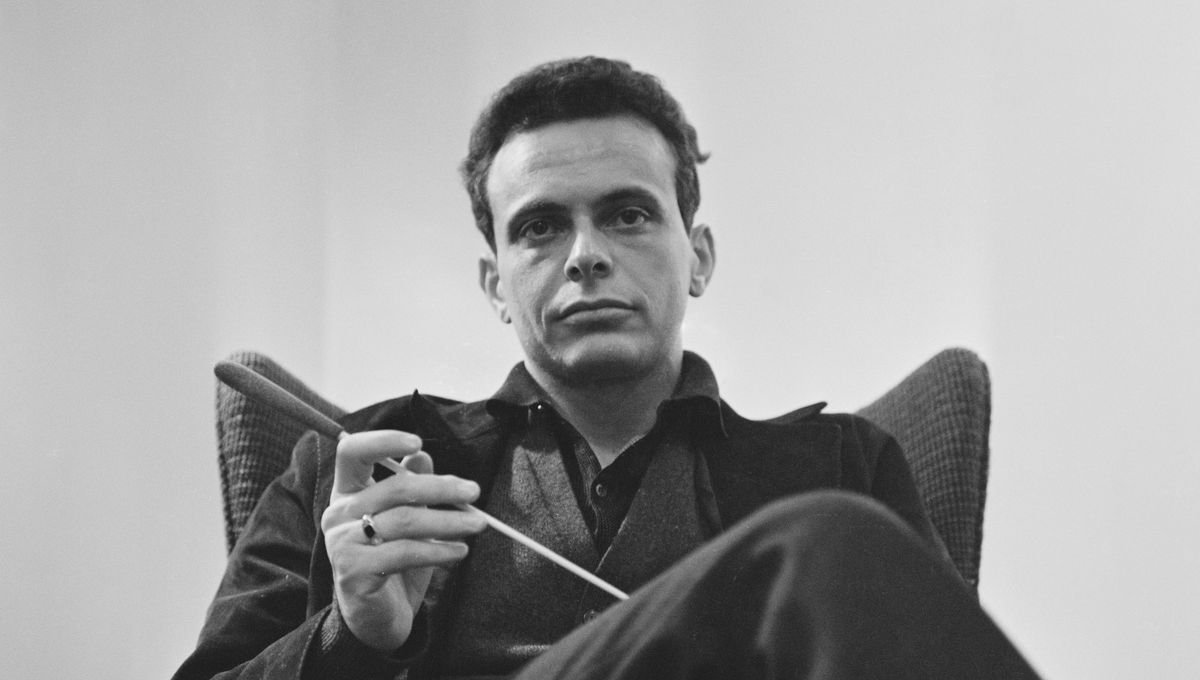Sibelius: Symphony No. 1/Vienna Philharmonic/Lorin Maazel—ESOTERIC Mastering vinyl reissue [2025]
Prolific conductor Lorin Maazel (1930–2014) doesn’t get much love from the classical community, except from professional musicians. The stories are legion of leading orchestral musicians who admire Maazel’s unmatched stick technique and his ear blessed with perfect pitch, and his photographic memory. Famously, he rehearses scores from memory. I never got to play under Maazel, but my dear friend and Audiophilia colleague Jim Norris has performed with Maazel extensively and talks about his musicianship with great admiration.
Even though his tenures with Cleveland, Pittsburgh and New York create robust discussions from both sides, there is no doubt to the quality of his famous 1960s Vienna Decca Sibelius Symphony cycle. And while I enjoy all seven, I think his 1963 recording of Sibelius’ Symphony No. 1 is the gem of the cycle. In addition to the symphony, we get a perennially sunny Karelia Suite.
As I was in serious “must have the best pressing” mode recently, I sold my narrow-band Decca version (basically a fourth, but still very good, Decca pressing). As I was rummaging around Discogs and eBay for an ED1 Wideband, the ESOTERIC announcement dropped. Although a famous Decca ED1 Wideband is the gold standard, the ESOTERICs have been so good, I ordered a copy immediately.
The original recording is from the Sofiensaal, engineered by James Brown and Gordon Parry and produced by John Culshaw.
The magic on this new pressing begins at the very start with the long, plaintive clarinet solo with gently rolling accompaniment timpani. The clarinet, even played quietly, is imaged perfectly in the hall with the timpani adding to the soundstage. I can’t imagine an ED1 doing this any better. It certainly bettered my narrowband by a long shot.
Lorin Maazel. Photo credit: Radio France
I’ve never been convinced of Maazel’s wimpy way with the opening violin theme (marked mezzo forte then poco forte). But at least here they sound sweet and diaphanous. But soon after, things get more interesting with very vibrant playing from the Vienna Phil.
From then on, Maazel’s interpretation is pitch perfect, and the orchestra plays beautifully for him. Even though this early work is heavily influenced by Tchaikovsky, especially the orchestration, there’s enough pure Sibelius to keep us all happy.
These ESOTERICs keep getting better and better. Just yesterday, I published my Backhaus/Böhm/Brahms review. It is a cracking remaster. That said, this Sibelius may be even better. The massed brass sounds golden and fills the hall with the resonance intact on the recording. And the Vienna strings sound as they do on many Deccas—rhythmic, technically assured, but with the cohesive ensemble they are famous for.
We know of the digital step ESOTERIC uses in its vinyl remasters, but you won’t be hearing any digital artifacts here. It’s all Viennese ice cream and lollipops. Also, typical of all my ESOTERIC reisuues, the record was flat, silent and centred.
I’d place the Three-Cornered Hat as my top ESOTERIC remaster, but this Sibelius Symphony No. 1 comes a close second. A masterful reissue and worthy of the purchase price. Very highly recommended.
Purchase the ESOTERIC vinyl and SA/CD catalogue at American Sound.

![Sibelius: Symphony No. 1/Vienna Philharmonic/Lorin Maazel—ESOTERIC Mastering vinyl reissue [2025]](https://images.squarespace-cdn.com/content/v1/55787f0ae4b02f0501debbeb/1763395786634-9NZR8W24LTPU4HV0VBSJ/IMG_0143.jpeg)


![Brahms: Piano Concerto No. 2/Wilhelm Backhaus, piano/Vienna Philharmonic/Karl Böhm—ESOTERIC Mastering vinyl reissue [2025]](https://images.squarespace-cdn.com/content/v1/55787f0ae4b02f0501debbeb/1763395748812-M725BHMJ988P76YNUYAC/IMG_0142.jpeg)